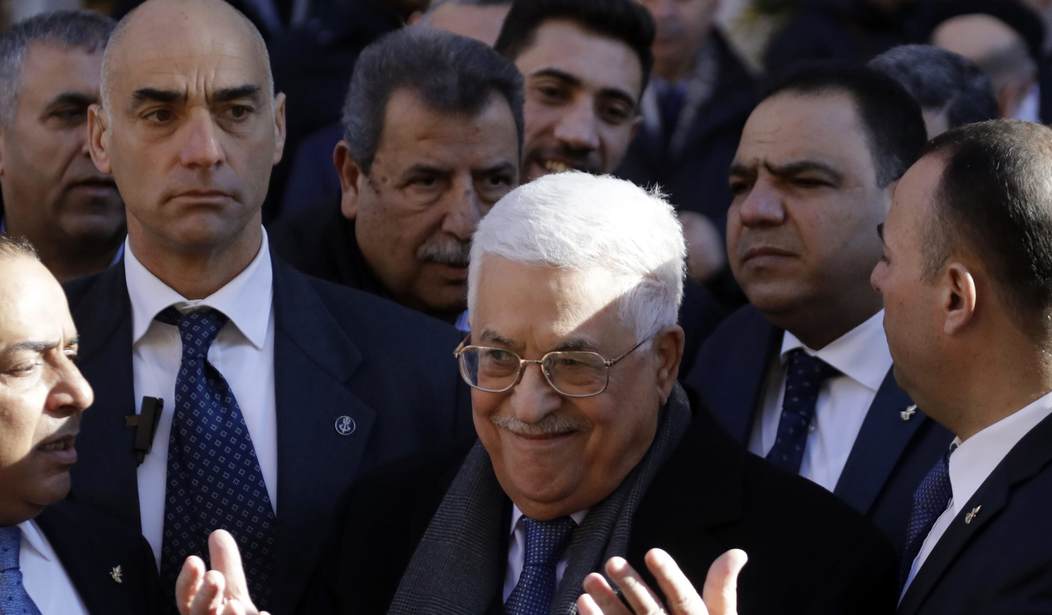WASHINGTON — President Trump invited Palestinian Authority President Mahmoud Abbas to the White House today in the first call between the two, the administration said this evening.
According to a readout of the call released by the White House, Trump and Abbas discussed “ways to advance peace throughout the Middle East region, including a comprehensive agreement that would end the Israeli-Palestinian conflict.”
“The president emphasized his personal belief that peace is possible and that the time has come to make a deal,” the administration said. “The president noted that such a deal would not only give Israelis and Palestinians the peace and security they deserve, but that it would reverberate positively throughout the region and the world.”
“He underscored that such a peace agreement must be negotiated directly between the two parties, and that the United States will work closely with Palestinian and Israeli leadership to make progress toward that goal,” the readout continued. “The president noted that the United States cannot impose a solution on the Israelis and Palestinians, nor can one side impose an agreement on the other. The president invited President Abbas to a meeting at the White House in the near future.”
Abbas spokesman Nabil Abu Rudeina confirmed the invitation, and said it was Trump who placed the call.
Palestinian officials said Thursday that they’re expecting a visit from Trump’s special envoy on Israeli-Palestinian negotiations within the next few days. Israel’s Channel 2 reported this week that Jason Greenblatt is making the trip in part to determine what the Trump administration’s policy on settlements will be.
Greenblatt is expected to meet separately with Abbas and Israeli Prime Minister Benjamin Netanyahu.
At a press conference last month with Netanyahu, Trump said a Mideast peace deal “might be a bigger and better deal than people in this room even understand.”
Trump said he’s “looking at two-state and one-state” solutions for a Mideast deal with the Palestinians “and I like the one that both parties like.”
“I’m very happy with the one that both parties like. I can live with either one. I thought for a while the two-state looked like it may be the easier of the two, but honestly, if Bibi and if the Palestinians — if Israel and the Palestinians are happy, I’m happy with the one they like the best,” he said.
Trump stressed “the Israelis are going to have to show some flexibility, which is hard, it’s hard to do.”
“They’re gonna have to show the fact that they really want to make a deal. I think our new concept that we’ve been discussing actually for a while is something that allows them to show more flexibility than they have in the past, because we have a lot bigger canvas to play with,” he said. “And I think they’ll do that. I think they very much would like to will make a deal, or I wouldn’t be happy and I wouldn’t be here and I wouldn’t be as optimistic as I am. I really think — I can tell you from the standpoint of me being from the standpoint of Israel, I really believe they want to make a deal. And they’d like to see the big deal.”
The Palestinians, the president said, “have to get rid of some of that hate that they are taught from a very young age.”
“They’re taught tremendous hate. I’ve seen what they’re taught. And you can talk about flexibility there too, but it starts at a very young age and it starts in the schoolroom. And they have to acknowledge, as you know, they’re going to have to do that,” Trump said.
Netanyahu said he was eager to discuss “the great opportunity for peace,” including involving “our newfound Arab partners,” in detail with Trump “because I think that if we work together, we have a shot” at a peace process.









Join the conversation as a VIP Member